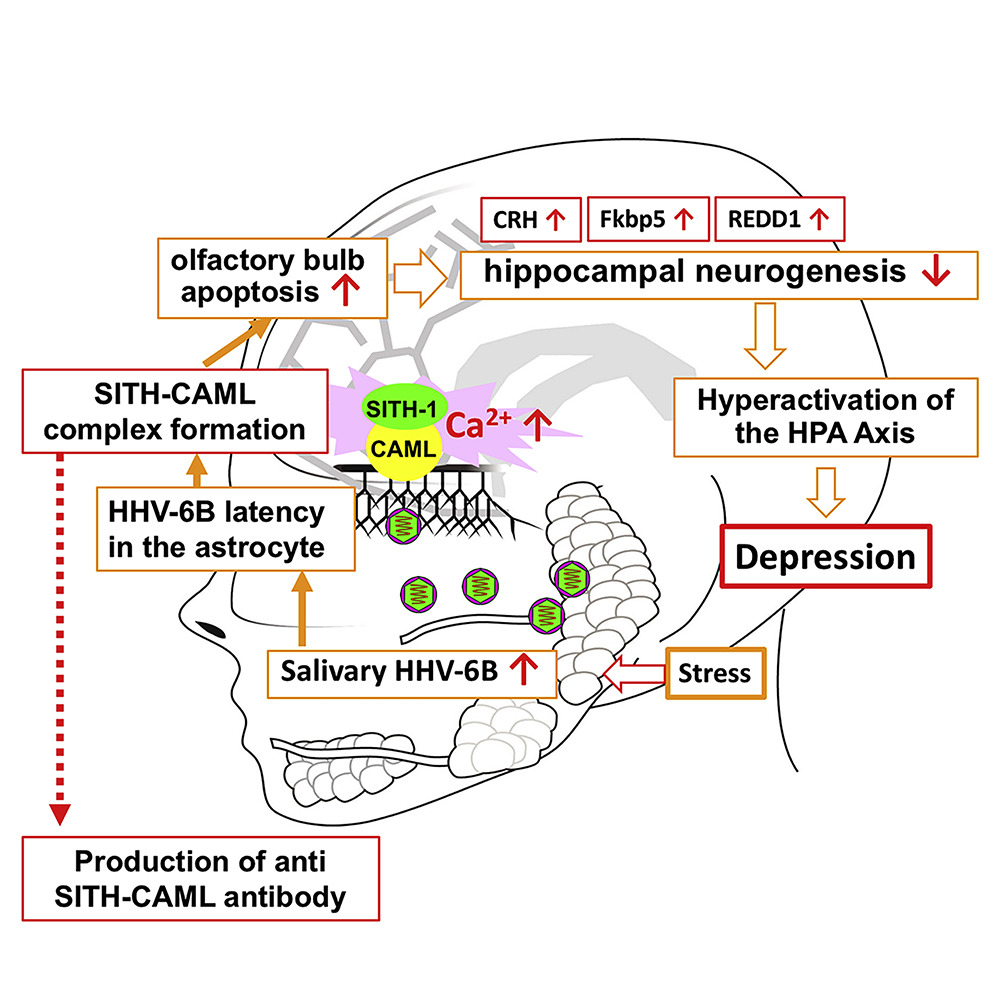本日は、以下の論文紹介が行われました。
Human Herpesvirus 6B Greatly Increases Risk of Depression by Activating Hypothalamic-Pituitary -Adrenal Axis during Latent Phase of Infection
Volume 23, Issue 6, 26 June 2020, 101187
https://doi.org/10.1016/j.isci.2020.101187
Highlights
We identified SITH-1, a new protein specific to HHV-6B latent infection•
Mice expressing SITH-1 at HHV-6B latent infection site had depressive symptoms•
Depressive symptoms due to SITH-1 were associated with a hyper-activated HPA axis•
SITH-1-specific antibody detection significantly greater in depressive patients
Summary
Little is known about the effect of latent-phase herpesviruses on their host. Human herpesvirus 6B (HHV-6B) is one of the most ubiquitous herpesviruses, and olfactory astrocytes are one of the most important sites of its latency. Here, we identified SITH-1, an HHV-6B latent protein specifically expressed in astrocytes. Mice induced to produce SITH-1 in their olfactory astrocytes exhibited olfactory bulb apoptosis, a hyper-activated hypothalamic-pituitary-adrenal (HPA) axis and depressive symptoms. The binding of SITH-1 to the host protein calcium-modulating ligand (CAML) to form an activated complex promoted the influx of extracellular calcium. The serum antibody titers for depressive patients with respect to this activated complex were significantly higher than for normal controls (p = 1.78 × 10−15), when the antibody positive rates were 79.8% and 24.4%, respectively, and the odds ratio was 12.2. These results suggest that, in the latent phase, HHV-6B may be involved in the onset of depression.
